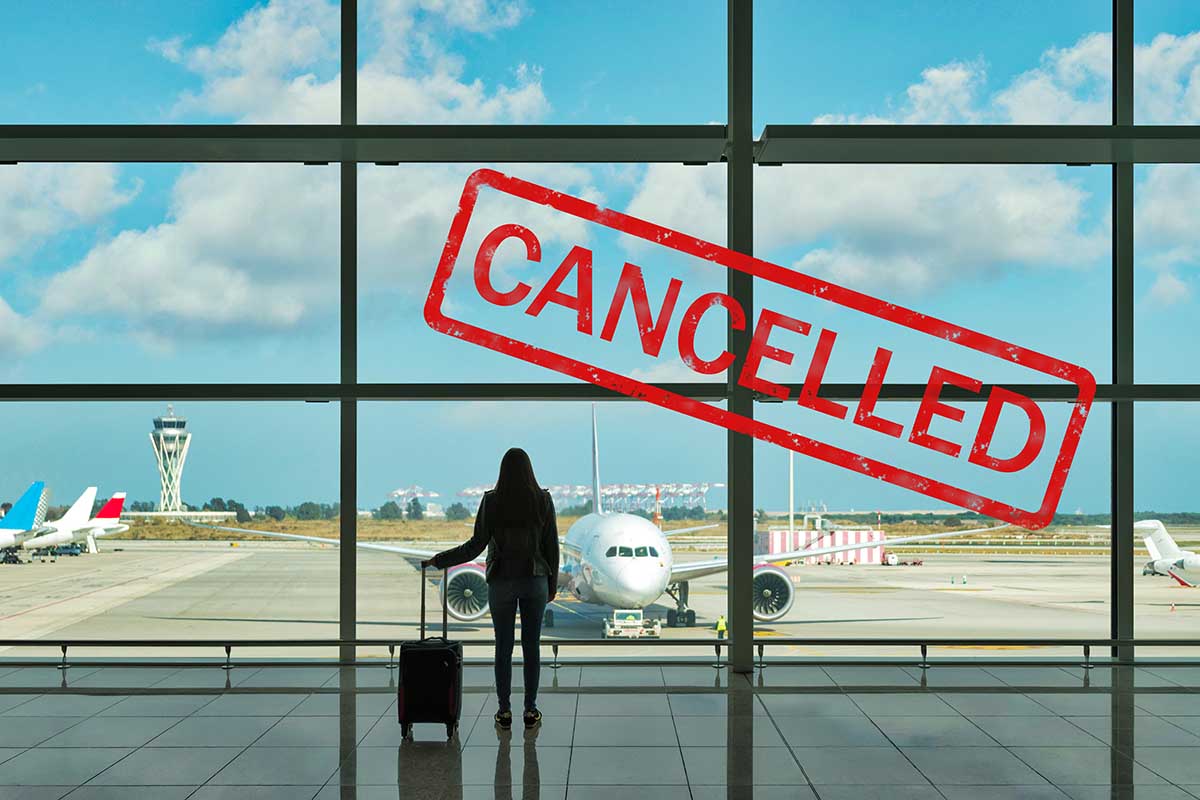What to Do When Your Flight Doesn’t Go as Planned
✅ Key Points
Stay Calm & Informed – Assess the disruption, check airline apps for updates, and review your insurance coverage before making decisions.
Communicate & Rebook Quickly – Contact airline staff politely but firmly, explore rerouting, refunds, or alternative travel options to stay on schedule.
Protect Comfort & Finances – Manage hotel or transfer changes, keep receipts for reimbursements, and know your passenger rights to reduce stress.
Travel plans are often meticulously prepared, booking tickets months in advance, arranging accommodations, and coordinating activities. Yet, despite careful planning, flights don’t always go as expected.
Delays, cancellations, missed connections, or even last-minute gate changes can throw a wrench into your schedule.
While these disruptions can be frustrating, knowing how to respond calmly and strategically can save both time and stress.
Stay Calm and Assess the Situation
The first step when your flight doesn’t go as planned is to stay calm.
Panicking rarely helps and can cloud your judgment. Begin by gathering information.
Check the airline’s app, website, or departure boards for updated flight status.
Understand the nature of the disruption: is it a delay due to weather, technical issues, or crew availability? The type of disruption will determine your options.
At this stage, it is also useful to review any insurance coverage you have.
For instance, Trip Delay Insurance can provide financial support for meals, accommodations, or alternate transportation when flights are delayed significantly.
Knowing what is covered in advance allows you to make quick decisions without incurring unnecessary expenses.
Communicate With the Airline
Once you know the status of your flight, communicate promptly with the airline.
If your flight is delayed, airline staff can provide options such as rebooking on the next available flight, arranging alternate routes, or offering vouchers for accommodations or meals.
For cancellations, ask about rerouting or full refunds.
It’s helpful to be polite but assertive.
Document every conversation, including names of airline representatives, reference numbers, and the time of discussion.
This record can be crucial if you need to escalate your case or file a claim later.
Explore Alternative Travel Options
If your flight is significantly delayed or canceled, explore other travel options. This may include:
- Booking a flight with a different airline.
- Considering trains, buses, or car rentals if the destination is accessible overland.
- Splitting your journey into multiple legs if direct flights are unavailable.
Flexibility is key. While sticking rigidly to your original plan might be ideal, exploring alternatives can help you reach your destination with minimal disruption.
Manage Accommodations and Transfers
A flight disruption often affects connecting reservations.
If you have hotel bookings, car rentals, or transfers arranged at your destination, contact the providers immediately.
Many hotels offer flexible cancellation or rescheduling options in unforeseen circumstances.
Airlines may also assist in coordinating ground transport if delays are extensive.
Maintaining a list of emergency contacts, such as hotel front desks, local taxi services, and travel agencies, can streamline these adjustments.
Take Care of Personal Comfort
Flight delays or cancellations can be physically and emotionally draining. During long waits, focus on your personal comfort:
- Find a comfortable spot to rest while staying near departure gates for updates.
- Stay hydrated and carry snacks in case airport food options are limited.
- Keep essentials like chargers, medications, and important documents accessible.
Wearing comfortable clothing and bringing a small travel kit can make extended waiting periods more manageable.
Stay Updated and Use Technology
Modern technology makes staying informed easier than ever.
Airline apps, flight tracking websites, and airport information screens provide real-time updates.
Push notifications can alert you to gate changes, boarding times, or cancellations.
Social media can also be a useful tool, as airlines often post urgent updates and customer service contacts on platforms like Twitter.
Additionally, travel forums and apps can help you find advice or alternative routes from fellow travelers who have faced similar disruptions.
Protect Your Finances and Documentation
Unexpected delays can result in additional expenses.
Keep receipts for any incurred costs, such as meals, accommodation, or transportation, as these may be reimbursable through insurance or airline policies.
Credit cards sometimes offer travel disruption coverage, which could complement other travel protection plans.
Ensure your travel documents, boarding passes, identification, and itineraries are organized and accessible.
Having digital copies stored securely in your email or cloud storage can save time if originals are misplaced.
Keep Your Mental Well-being in Mind
A disrupted flight can induce stress and frustration, but maintaining a calm mindset is essential.
Engage in activities that reduce anxiety, such as listening to music, reading, or meditating.
If traveling with family or friends, communicate clearly and support each other to minimize tension.
Recognize that delays are often outside your control. Adapting with a proactive mindset can turn an otherwise stressful experience into an opportunity to practice patience and resilience.
Know Your Rights as a Passenger
Passenger rights vary by airline and country. In many regions, regulations protect passengers from extensive delays, cancellations, and overbooking. These rights may include:
- Compensation for long delays.
- Mandatory care in case of cancellations (food, accommodations, or alternate flights).
- Refunds or rebooking options are available in specific circumstances.
Familiarize yourself with these rights before traveling.
Being informed helps you navigate disruptions effectively and assert your entitlement without unnecessary confrontation.
Learn From the Experience
Finally, use the experience to improve future travel plans. Consider:
- Booking flights with buffer times for connections.
- Choosing airlines with higher on-time performance rates.
- Keeping a small emergency fund for unexpected travel expenses.
- Reviewing travel insurance options for comprehensive coverage.
Every disruption is an opportunity to enhance your travel strategy, ensuring smoother trips in the future.
Conclusion
Flight disruptions are frustrating, but being prepared, staying calm, and knowing your options can significantly reduce stress.
From promptly communicating with airlines to exploring alternative travel arrangements, managing personal comfort, and leveraging technology, there are multiple ways to stay in control.
Keeping insurance coverage, whether you are a senior traveler, a young adventurer, or traveling with family, protecting your finances, and understanding passenger rights further empower you to navigate these challenges effectively.
By learning from each experience, you can travel smarter, ensuring that even when plans go awry, your journey continues with minimal disruption.



















